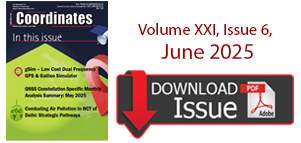| News Update | |
Sandia’s Atomic ‘Avocado’ could allow GPS-free navigation
Sandia National Laboratories has developed the core technology needed to create small enough quantum sensors to potentially free the US military (and civilians around the world) from reliance on GPS satellites for way-finding, according to lab officials.
The first-of-its-kind device, a passively pumped vacuum chamber for containing clouds of atomic particles that drive quantum sensors, is about the size of an avocado, according to an Oct. 26 news release from the Albuquerque-based US nuclear research lab. Sandia scientist Peter Schwindt told Breaking Defense that while lab researchers hadn’t weighed the device, “If I had to guess, it is less than one pound.”
That is small enough to enable highly accurate quantum positioning, timing and navigation (PNT) systems that in the future could be carried on vehicles, aircraft, satellites or even soldiers’ backpacks — providing an alternate, or even a replacement, for Global Positioning System satellites, which use highly accurate atomic clocks for PNT measurements. Quantum sensors, based on lasers, already are being tested in laboratories around the world, but Schwindt cautioned that there is still development work — not just on vacuum chambers — to be done to be able to use them as replacements for GPS.
sandia.gov











 (No Ratings Yet)
(No Ratings Yet)






Leave your response!